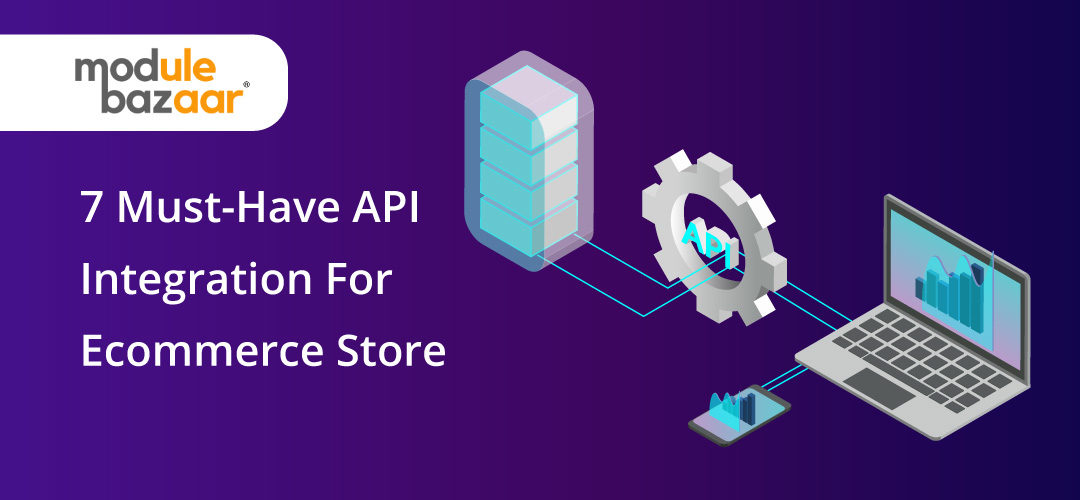Share the post "7 Must-Have API Integration For Ecommerce Store"
API or Application programming interface is one of the most commonly used terms in software. While the meaning is quite simple, it is the functionality that forms the base for all computer applications. An Application Programming Interface is nothing but a sequence of functions that establish a connection between the applications. In short, the API integration acts as a connecting link between different devices and programs and thus streamlines the functions in a business ecosystem.
One of the most widely used examples of API Integration is Google maps and slack API. Both these applications help developers to embed maps onto different pages on the web. As the popularity of API interfaces continues to grow stronger, it has also navigated its way to various eCommerce applications.
How API Helps Ecommerce?
It is already a busted fact that API’s can improve the eCommerce functionality. The API integration helps enhance the functionality of your online site and makes it viable for an eCommerce solution.
There are various ways in which APIs can help an online store. The application programming interface gives access to the major shipping companies to fulfil the orders without any delay in improving the service quality and capability enhancement.
What are the available API Integrations For Ecommerce?
Although an eCommerce site requires many functions for carrying out its work smoothly, we have listed 7 API integration that can help your business in many ways.
Read also :- Boost Sales of Your e-Commerce Shop Effectively with These Extensions.
Product Information API:
A product information API, as the name suggests, is related to product information. These API types help retailers extract accurate information like product information, descriptions, specifications, brand images, and many more. The API accesses this information either from a shopping site or a global database of products.
Login API:
This type of API helps in establishing customer identification of the site. It helps users feed their information and log in to the site using either Facebook, G Suite, mails, active directory, etc.
Affiliate API:
Affiliate marketing is one of the biggest sources of passive income today. It helps users to sell merchant products using the eCommerce site. Therefore, an Affiliate API is a go-to source for promoting the products on an eCommerce site. For this whole system to work out all you have to do is copy the required code and paste them on the site and then just wait for the sale.
Personalization API:
Personalization API taps into the user’s browsing behaviour and gets a sneak peek into the buyer’s mentality. In this way, these tools then recommend the products based on the preferences you have made. This type of API Integration gives an authority to users to search for similar items without any hassles.
Marketing Automation API:
This type of API adds the customers to your site automatically. The API sorts the customers’ email list and then segments them accordingly based on the criteria of purchases made, location, and amount.
Social Proof API:
The social proof API makes the customer sure of the integrity of the site. This is mainly done through the social media widgets which work with popular sites such as Instagram, Twitter, and Facebook and presents a relevant activity to the users.
Payment API:
If you want your eCommerce store to accept electronic payments, then the payment API feature is something that should not be missed. These types of plugins are the best eCommerce solutions as they help the online site to have a fully functional online payment system.
All these above-mentioned API’s can enhance the functionality of your site by ten-folds and thus are the best way to make your site roll digitally.


